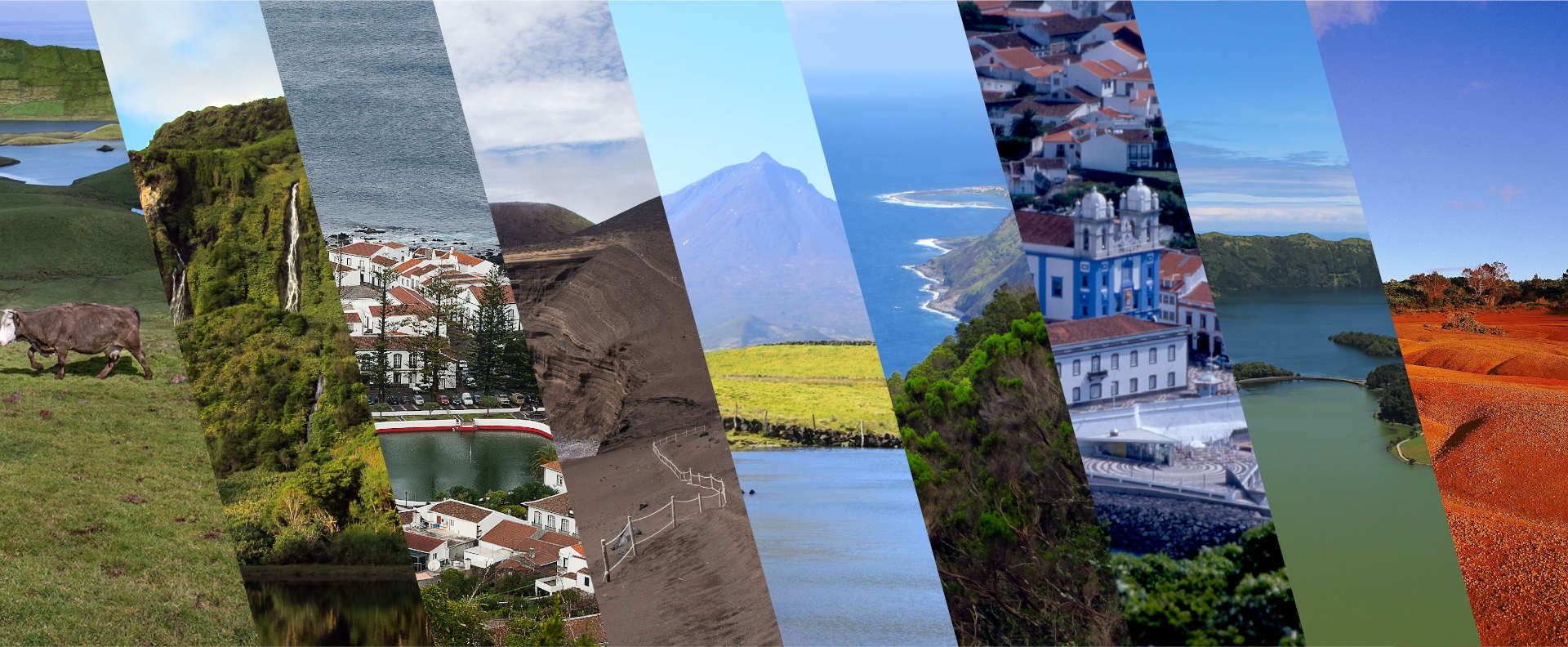- Management Instruments
- RRP - Recovery and Resilience Plan

Governo dos Açores disponibiliza formulários de autorização para atividades no Parque Marinho
Bluefin tuna quota increases by 21% in 2026, announces Regional Government
New RecFishing app allows electronic recording of catches for recreational fishers in the Azores
 News
News
The Azores sea represents a significant part of the country's vast area under maritime jurisdiction. For the Azores, the sea has always played a very important role, namely in its development, influencing the economy and shaping its own identity.
Given the relevance of the Azores sea, the Regional Secretariat for the Sea and Fisheries (SRMP), a department of the XIII Regional Government, was created with the aim of providing a more adequate response to the pursuit of the Region's interests in the sectors of the sea, fisheries and fisheries inspection.
The SRMP is responsible for the definition and implementation of regional policies in the areas of oceanography, fisheries and aquaculture, enhancement and preservation of the marine environment, as well as other matters related to the sea. They include the planning and management of the coastline and marine protected areas, and maritime spatial planning.
Based on a global vision of promoting a healthy ocean, through a sustainable blue economy, the regional strategy for the Azores Sea is of particular importance, as well as the Azores Maritime Spatial Planning Plan, as structural elements to develop and leverage the economy of the sea.
It is also important to mention that the regional policies for the governance of the ocean will be based on co-management work to promote an integrated and sustainable management, aligning the interests of various political and economic agents and stakeholders. They will always rely on the contribution of researchers, fishers and associations of the sector.
Aware that the economic viability and competitiveness of the fisheries sector entail the definition of strategies that take into account the state of resources, the SRMP will focus on the scientific assessment of the target resources of different fishing activities. This may eventually lead to the adaptation of the fleet to existing resources, always safeguarding the social and economic component of the sector.
Considering that the sea represents a fundamental pillar for the future viability of the Azores, the Regional Secretariat for the Sea and Fisheries is committed to strengthening fundamental instruments for the implementation of Community policies and the respective national and regional support policies for the sea sector.
The Regional Secretary for the Sea and Fisheries
Manuel Humberto Lopes São João

March 1, 2026
Governo dos Açores disponibiliza formulários de autorização para atividades no Parque Marinho
O Governo dos Açores, através da Direção Regional de Políticas Marítimas, informa que já se encontram disponíveis os formulários para pedidos de autorização de atividades e usos condicionados no Parque Marinho dos Açores. Este procedimento, gerido pela Autoridade de Gestão da Rede de Áreas Marinhas Protegidas dos Açores (RAMPA), abrange a área oceânica situada entre as seis e as 200 milhas náuticas da costa. O Parque Marinho encontra-se dividido em dois níveis (proteção total e proteção alta), exigindo autorização prévia por parte da Autoridade de Gestão para o exercício de um conjunto de atividades específicas nestas áreas. Para assegurar uma monitorização rigorosa e simplificar o processo aos utentes, foram criados dois formulários distintos: um exclusivamente dedicado ao setor das pescas e outro dirigido às atividades científicas e marítimo-turísticas. A Autoridade de Gestão clarifica que a única exceção à obrigatoriedade desta autorização prévia será a pesca de atum com arte de salto e vara nas zonas de proteção alta. Esta isenção produzirá efeitos assim que entrar em vigor o diploma aprovado em janeiro pela Assembleia Legislativa da Região Autónoma dos Açores. Salienta-se ainda que a validade das autorizações emitidas RAMPA ficará sempre condicionado à duração e regularidade das restantes licenças legalmente exigíveis para o exercício de cada atividade. Os interessados podem aceder aos formulários eletrónicos na área de licenciamentos da Direção Regional de Políticas Marítimas, através do seguinte endereço: https://servicos-sraa.azores.gov.pt/doit/servicos.asp?id_dep=10&id_form=77

February 13, 2026
Bluefin tuna quota increases by 21% in 2026, announces Regional Government
The bluefin tuna fishing quota will increase by 21% in 2026, allowing Azorean fishers to catch 115 tonnes of this highly commercial species. This increase stems from negotiations between the Governments of the Azores and Madeira, through their regional fisheries services, and the Directorate-General for Natural Resources, Safety and Maritime Services, leading to an increase in the available quota by 20 tonnes, from 95 tonnes in 2025 to 115 tonnes in 2026. This measure represents a significant boost to economic opportunities for the fishing sector and coastal communities dependent on this activity. According to the order issued by the Directorate-General for Natural Resources, Safety and Maritime Services, the distribution of the national bluefin tuna quota in the Atlantic Ocean, east of 45º W, and in the Mediterranean Sea has been defined within the framework of the fishing plan submitted to the European Commission. For 2026, Portugal has a total quota of 746.51 tonnes. The increase in the quota for targeted fishing in the Azores and Madeira is aligned with the growing value of bluefin tuna on international markets, where the species has high commercial value and demand, especially in the food export industry. Increased catches could translate into higher income for Azorean shipowners and fishers, boosting the local economy and associated logistics chains, such as processing, transport and trade. In addition to targeted fishing, the Order also establishes the allocation of 106.01 tonnes for bycatch to vessels with ports of reference in Mainland Portugal, the Azores and Madeira, ensuring greater operational flexibility for the sector. The Regional Government defends that the contribution of bluefin tuna to the economic sustainability of fishing communities must be accompanied by responsible fisheries management on the part of shipowners, focusing on maximising the price of this species on the first-sale fish market.









